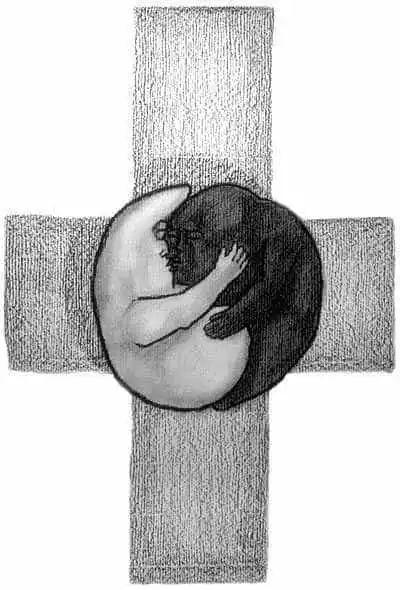FUNDAMENTALS |
BELIEFS A — Z |
|
INSPIRATION |
ENCYCLOPEDIA |
|
Addicted to Inspiration That which gives energy to lifeSince childhood, I have been addicted to inspiration. It is one of those things that make life worth living. Contrary to many reports of the opposite, I have always found inspiration easy to induce, for example by listening to music, looking at master paintings, or reading a really good novel — but mostly by simply rolling up my sleeves and getting to work on something that demands inspiration, again usually something artistic. When inspiration flows, it feels as tangible within my body as a liquid, like the blood pumping through my veins, or an ether, like the air I inhale and exhale. Although inspiration is a state of mind, it feels no less real than my body and the world that surrounds me. As a child, I observed the world through this ether of inspiration, and took delight in it. As an adolescent, I happened to come across the peaceful martial art aikido (see the image), and started to practice it passionately. Thereby, I was introduced to ki, the Eastern idea of a life force (from Chinese usually transcribed qi or chi). It felt like inspiration, too, but with an expression of power. Ki was more for physical action, such as throwing fellow aikido practitioners around. The energy by which to get things done. An ether, just like inspiration, but one of intention. Still, they felt essentially the same. I continued with aikido, and with some artistic expressions. Well, aikido is also an art. Let's call everything that inspires us art. During my adult years, I have also studied the history of ideas — those of art, science, religion, philosophy, politics, and so on. What continues to fascinate me is to discover again and again the marvel of the human mind — already at times so ancient that we know precious little about them. Long before the very first book was written, clever minds had pondered the world and how it might work, and they came up with some brilliant explanations, impressive even when later proven wrong. Wisdom is not dependent on truth. The latter is so much a question of perspective and interpretation, whereas the former is evident to all, through time and any change of civilization. The history of mankind is generous with examples of such wisdom. And the wise have always speculated about the essence of life. What is it to be alive, and what makes it worthwhile? It can be of no surprise that some of the most inspired thoughts have dealt with the subject of inspiration, and with bewildering enigmas of that kind. Well, the subject has definitely been treated with some striking folly, as well. Genius and folly are each other's prerequisite. The one cannot exist without the other. You have to dare to be a fool for your thoughts to go beyond the already known. Any great discovery begins as an absurdity, and every revelation is born in confusion. As for the arts, their realm is lunacy and every artist is obsessed. Life is a mystery that might only be grasped through folly, speculation, inspiration, and intuition. Its very nature is not a thing to understand as much as to experience. This Life Energy Encyclopedia contains a number of speculations — sometimes foolish, often inspired — based on human experience. Whether right or wrong, they say a lot about the nature of this experience. As long as there are new experiences made, there will be new speculations. That's the only truth.
About CookiesMy Other Websites
Qi Energy ExercisesThe ancient Chinese life energy qi (chi) explained and how to exercise it.
Creation MythsCreation stories from around the world, and the ancient cosmology they reveal.
Cosmos of the AncientsWhat the Greek philosophers believed about the cosmos, their religion and their gods.
TaoisticTaoism, the ancient Chinese philosophy of life explained. Also, the complete Tao Te Ching online.
Other Books of Mine
The Greek philosophers and what they thought about cosmology, myth, and the gods. Click the image to see the book at Amazon (paid link). |
 Life Energy Encyclopedia
Life Energy Encyclopedia Qi — Increase your life energy
Qi — Increase your life energy Cosmos of the Ancients
Cosmos of the Ancients Archetypes of Mythology
Archetypes of Mythology Tao Te Ching
Tao Te Ching Fake Lao Tzu Quotes
Fake Lao Tzu Quotes Stefan Stenudd
Stefan Stenudd